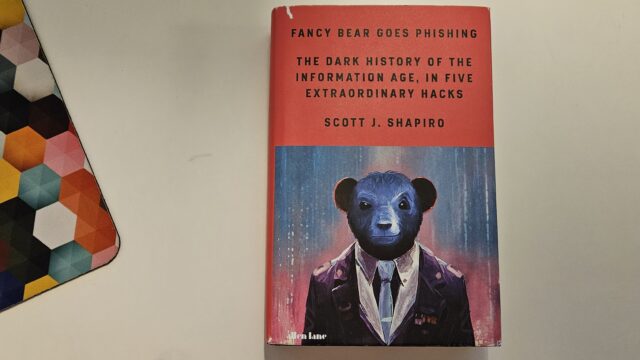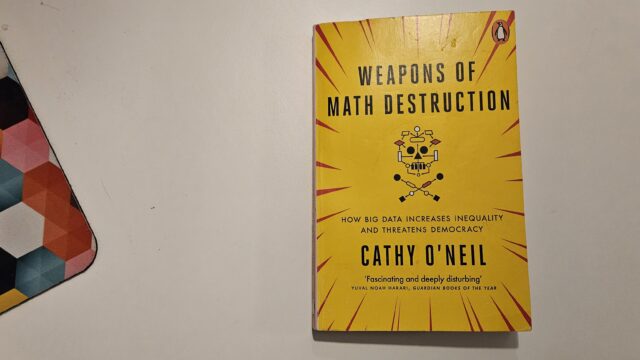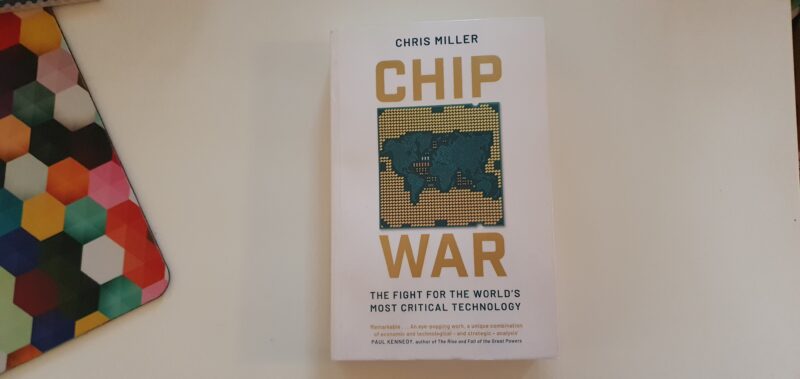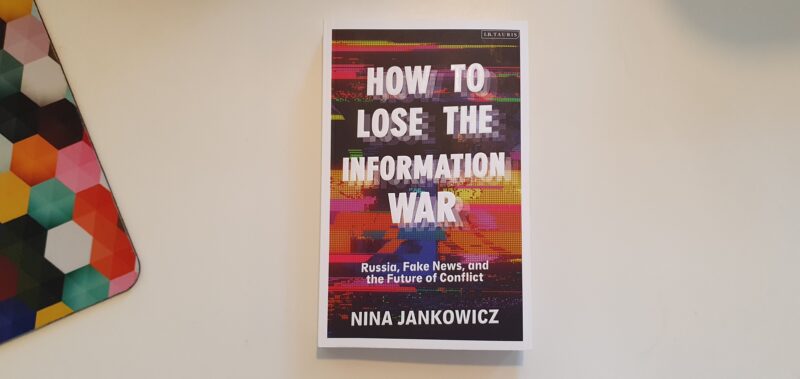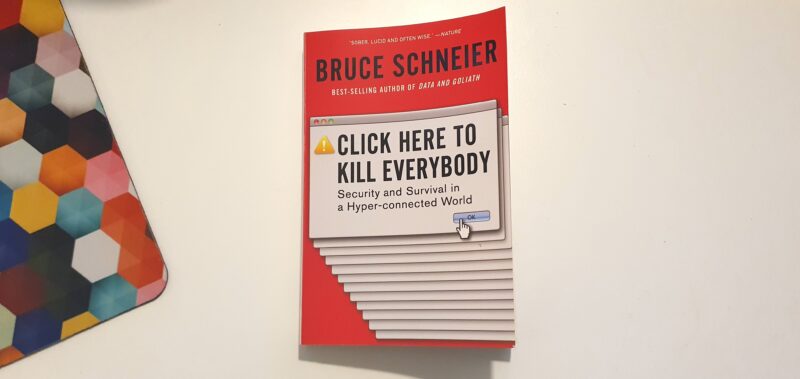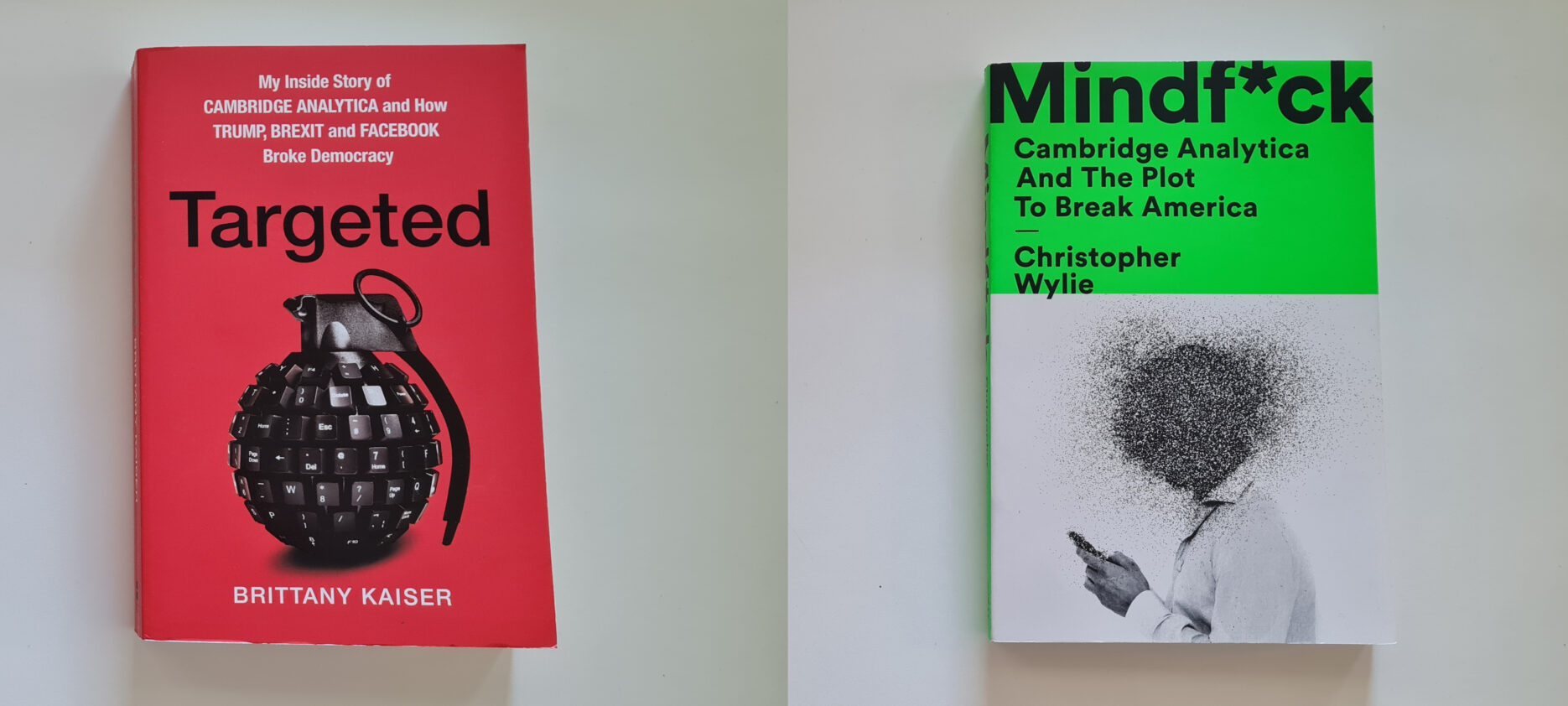I reminisce sitting on the bus to Arlanda Airport, frantically reading interviews with someone named Christopher Wylie in The Guardian, the breaking news on every other news channel I could possibly find on the 18th of March 2018: Cambridge Analytica and it’s role in manipulating democratic elections.
Mindf*ck by Christoper Wylie
Chris Wylie is a self-taught computer guy with a nack for analyzing data, especially electoral data from Canada, England and the US. He worked for the Liberal democrats in Canada, moved to England and started working for the Liberal Democrats in England. Later he started working for a small data company named SCL Group, (Cambridge Analytica was part of the Strategic Communications Laboratories Incorporated, shortened SCL or later the SCL Group) and later Cambridge Analytica (shortened CA).
CA worked with military clients and one direction was to influence the minds and behaviour of people, especially “the enemy”. Wylie introduces the reader to the history of psycological operations, psyops. For this they needed data and data to analyze, so they turned to social media, mainly. CA began operating for parties in elections in countries, often poor ones, with weak democratic institutions.
Wylie tells the story of how Dr. Kogan came up with the app (This is your digital life) that harvested data points and personal data on approximately 87 million Facebook users (Kaiser also tells this); how he met Steve Bannon and how Cambridge Analytica came to be baptisted.
One of my favourite parts, and the one I remember the most, is how he travelled for CA to interviews lots of people. Countless field studies became a backbone of the Trump campaign, alongside all the digital data points collected through (primarily) Facebook. I think this side, and importance, of the story is rather underappreciated, how people like Wylie sat with hundreds or thousands of people to interview them, to better understand why they voted for conservative ideas, how to trigger people online, how to microtarget individuals or small groups. Wylie and his colleagues understood that talking to real persons in real life is where you really, basically understand people.
Crucial to the story is that Wylie quit CA in 2014, two years before the Brexit election and the American presidental election of 2016.
Targeted by Brittany Kaiser
Before buying Wylie’s book I noticed another person defected from Cambridge Analytica, or actually, the SCL: Britanny Kaiser, to most people an unheard of name. After some time I watched the documentary The Great Hack on Netflix and Britanny Kaiser stepped into my mind for the first time, outside the book reviews.
She was devoted to human rights and tireless work for NGO’s internationally. She also worked for Barack Obama’s first presidential campaign. According to her, she needed money for the parents, and got hired by SCL. She became a travelling salesperson, working somewhat closely (yet loosely) to Alexander Nix, the head of both companies, for years. She was very much involved in American politics, first with the campaign of Ted Cruz and later with Donald Trump’s campaign.
AggregateIQ (AIQ), also called SCL Canada, was one of the companies belonging to SCL Group (Wylie also writes about the company), who became involved in the Brexit election, doing business for leave campaigns, using lots of personal data on social media and involving money the campaigns were not supposed to have.
The most fascinating thing and that really stuck with me is Siphon and the details Kaiser provides on microtargeting people. Siphon was a dashboard with which “the campaign could keep track of ad performance in real time”. The dashboard users could adjust campaigns after going into details about every single ad (and there were many thousands) they ran. Kaiser presents costs for presenting ads to Hispanics deemed persuadables with political interests in “jobs, taxes, and education” or white women in Georgia, deemed persuadables, with interests in “debt, wages, education, and taxes”. The entire US turned into a video game, states representing theatres to be won.
All in all: Wylie vs Kaiser
Both Wylie and Kaiser perceive Cambridge Analytica’s work as dangerous. They give plenty of examples of how CA tried to manipulate and influence voters and suppress people from voting. One issue is that they exagerate their own and CA’s clout. They definitely were meddling in the contested elections in the US and UK, but there are so many other actors involved, and Bannon or the Mercers are not flawless superminds who work in the shadows, able to influence and manipulate everyone. Things are usually always complex. I think the main reason the story of Cambridge Analytica became so big is that it showed how social media, personal data and the dirty tactics of today work.
There are real differences between Wylie and Kaiser, some that I need to address.
Wylie’s contempt for Alexander Nix is unmistakable, whereas Kaiser is more forgiving and can see beyond Nix’s influence and work, and see someone charming, someone human. Wylie really has/had some difficulties getting along with people and isn’t afraid of mentioning it.
Where Kaiser is skeptical and suspicious of The Guardian’s reporting, and Carol Cadwallar in particular, about CA, Wylie is completely dependant on this newspaper and Cadwallar in particular.
Mind also that Wylie claims Kaiser isn’t a whistleblower, just an opportunist saving herself before the boat sank. Kaiser, on the other hand, claims Wylie was a simple low-lever worker she never really heard of, who over-exaggerated himself and his importance, while actually leaving before of the crucial years of 2015-2017. One can see the similarity to Edward Snowden’s story, proclaiming he had more power and insight than he actually did, when Wylie fills his story with conversations with the important persons (Steve Bannon and Rebecca Mercer for instance), while Kaiser doesn’t seem to understand how important she actually was to CA. She was there with Ted Cruz and Kellyanne Conway during his campaign, she was present with Steve Bannon, Conway and Donald Trump on election night in 2016. She was part of the team.
All in all, I think her book is slightly more sincere. She acknowledges faults and mistakes, blind spots, things she refused to see during the years of 2014-2017. She didn’t seem to ask the necessary questions, albeit, in her defense, she wasn’t immersed in the technical issues or the field research the way Wylie actually was. He admits the jolt of interest and excitement of interviewing a New Age woman who is into Donald Trump, sitting in her house asking questions. Meanwhile Kaiser is constantly on airplanes brokering deals. Should she had suspected something? Shouldn’t she? Should he? Shouldn’t he? Does anyone acknowledge one’s side as “evil”, “bad” or “wrong”? Most people on this planet presume their on the right side, the good side. If I tell you your boss might be using surveillance programs on your work computer, should you examine if I’m right or do you presume I’m wrong? Are you too lazy to check, do you think me a liar, a conspirator for asserting such a thing, are you more comfortable remaining in the unknown unknown?
Kaiser and Wylie were both useful fools, running fool’s errands for years, for rich people who understood how social media, media, elections (for instance, how few votes in specific districts are needed to winan election there) and people work. People, like Bannon, John Bolton, and the Mercers, pull strings in order to turn politics in their direction. They use a variety of companies to gather personal data, to sway people’s minds, to insert news into social media and media, to manipulate tiny details in order to turn the whole into something different. Insidious and genious.
Still, after all, how many people actually question their jobs, their vocations, their circumstances as they happen, and not simply in hindsight? These two persons did question jobs before Cambridge Analytica really came into the headlights, even if their views and opinions differ. Their stories are well-worth reading, particularly because they differ.

